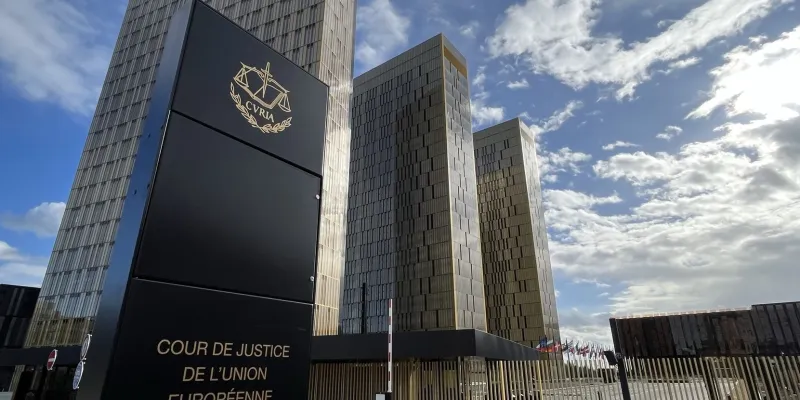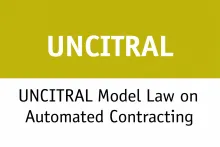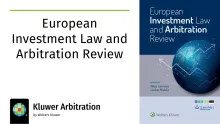Res judicata and “Effective Judicial Review” in (Sports) Arbitration – the CJEU’s Judgment in Seraing (C-600/23)
September 30, 2025
On 1 August 2025, the Court of Justice of the European Union (“CJEU”) rendered its decision in Seraing, finding that national law conferring res judicata to Court of Arbitration for Sports (“CAS”) awards may not be applied where (1) the underlying dispute is linked to sport as an economic activity within EU territory, and (2) the award’s conformity with EU public policy has not been reviewed by a Member State’s court. This holding invites courts to interfere with arbitration other than in setting aside and enforcement procedures, potentially disrupting the system of judicial review altogether. Whether the effects of the judgment will be limited to sports arbitration is unclear.
The Questions for Preliminary Ruling
The dispute revolved around the RFC Seraing’s violation of FIFA’s Regulations on the Status and Transfer of Players (“Transfer Regulations”) of 2014, upon which FIFA as the competent Sports Governing Body (“SGB”) fined the club and imposed a ban to register players for four registration periods. In the subsequent CAS arbitration, RFC Seraing argued that the relevant Transfer Regulations infringed Swiss and EU competition laws and fundamental freedoms provided by European primary law. The CAS tribunal dismissed these arguments and the ensuing setting aside procedure before the Swiss Federal Tribunal (“SFT”) found no violation of substantive public policy.
The Belgian Court of Cassation requested preliminary ruling whether Art.19 (1) TEU (together with Art. 267 TFEU and Art. 47 European Charter) required a court to refrain from applying national law stipulating res judicata effects of an arbitral award if the award has not been reviewed for conformity with EU law by a Member State court (“EU court”) but only by a non-Member State court. Additionally, the Court requested clarification regarding the probative value of such an award. The CJEU found that EU law precluded the application of the res judicata provision to ensure effective judicial protection.
The CJEU’s Notion of Effective Judicial Protection
The CJEU bases its finding on the importance of effective judicial protection. Effective judicial protection entails remedies enabling the competent national court to request preliminary ruling (para. 77). Since arbitral tribunals do not constitute “courts or tribunals” under Art. 267 TFEU, they are not eligible to request preliminary ruling.
While stressing that the EU’s legal order in principle does not preclude individuals from arbitration, the CJEU reiterates the findings of Achmea, Komstroy and PL Holdings on intra-EU investment arbitration (paras 78-79). Moreover, the CJEU refers to ISU, in which it held that arbitration used in disputes related to economic activity within EU territory must be designed in such a way as to ensure compatibility with the principles underlying the EU’s judicial architecture and EU public policy (para. 82). Despite limited judicial review, circumventing the principles and provisions of EU public policy through arbitration is unacceptable (paras. 84, 87).
In sports related disputes, the CJEU considers the conformity of arbitral awards with EU public policy particularly important due to the unilateral imposition of arbitration agreements on the athletes. The CJEU acknowledges that, in principle, the mandatory nature of sports arbitration is justified due to the legal autonomy and responsibilities of SGBs and the aim of uniform and consistent treatment of sports disputes (para. 94). Yet, the SGBs’ legal autonomy cannot justify limiting individuals’ reliance on EU rights and freedoms. Instead, particularly in mandatory arbitration, compliance with those rights and freedoms is subject to effective judicial review (para. 95). While a direct remedy against such awards before EU courts is not required, individuals must be able to indirectly obtain effective judicial review (para. 100). EU courts requested to review awards interpreting or applying provisions of EU public policy cannot be confined to a finding that the award infringes the principles or provisions of EU public policy (paras. 101-102). Rather, they “must be able to draw […] the appropriate legal conclusions” (para. 103). For competition law and the freedom of movement, the CJEU even requires that parties may request the court to “bring to an end the [infringing] conduct” (para. 104).
The Role of Interim Relief
Additionally, the CJEU revisited the issue of interim relief, previously discussed in ISU. In Seraing, interim relief played a role due to the CAS appeal’s lack of suspensive effect. The CJEU acknowledged interim relief as part of effective judicial protection and required EU courts to “have the power to grant interim measures” (para. 105). Importantly, the CJEU held that any EU court with jurisdiction “must disapply any rule of a Member State, or, a fortiori, of a sports association that prohibits the individuals concerned from requesting that court or tribunal to grant such interim relief or that otherwise precludes it from granting them such interim relief” (para. 107). Thereby, the CJEU clearly dismisses general waivers of court-ordered interim relief commonly imposed on athletes through the rules of SGBs and in R.37.3 CAS Procedural Rules 2025.
The Catch: Specificities of Sports Arbitration
The decision is unsurprising given the CJEU’s prior holdings and its well-established policy of protecting interpretative authority over EU law. Nevertheless, it is notable that it barely discusses the specificities of sports arbitration, in contrast to the Advocate General’s (AG) opinion and its decision in ISU. The CJEU merely confirms the distinction between compulsory and voluntary arbitration (para. 80), the admissibility of sports arbitration in principle (para. 94), and considers SGBs responsible to make direct legal remedies available within the EU (para. 99). Thereby, it refers to the possibility of SGBs moving the seat of arbitration to EU territory – as recently demonstrated by UEFA offering an alternate arbitration seat in Dublin (Article 16.3 UEFA Authorisation Rules). Only with this reference does the CJEU allude to the actual issue at stake: due to the SGBs’ ability to impose self-executing sanctions on recalcitrant athletes and clubs, awards rendered in sports arbitration rarely require enforcement – CAS arbitration provides a self-reliant system. Since arbitral awards are subject to direct judicial review only at the seat of arbitration (in setting aside proceedings) and before courts where recognition and enforcement is sought, judicial review in sports arbitration is commonly limited to the arbitral seat, typically Switzerland. This inevitably leads to frictions where EU law is affected but excluded from the scope of review – as is exactly the case with review of CAS awards before the SFT.
A Welcome Departure from AG Ćapeta’s Proposal
Commentators have considered the judgment positively (here and here) compared to the highly controversial proposal of AG Ćapeta. Her Opinion proposed a specific interpretation of the relationship between EU law and mandatory arbitration based on systematic differences between sports and commercial arbitration. Based on sports arbitration’s mandatory nature and lack of judicial review, the AG Opinion suggested full review of compliance with EU law both in enforcement and in other actions (para 115). Moreover, it outlined a novel interpretation of Art. II (1) New York Convention (“NYC”) under which CAS awards would not be considered arbitral awards eligible for recognition and enforcement – rendering the Convention inapplicable. Alternatively, the AG suggested that the EU principle of effective judicial protection be considered part of public policy, enabling full judicial review in cases of mandatory arbitration.
The CJEU, by confirming the applicability of the NYC, took into account the Member States’ obligations under the Convention, avoiding an unpredictable disruption of arbitration. Nevertheless, even though the CJEU only requires “effective judicial review” as opposed to full judicial review, the effects and scope of this standard are unclear.
“Effective Judicial Review” – the Solution to an Unsolvable Dilemma?
The CJEU faced a seemingly unsolvable dilemma – respecting the role and autonomy of arbitration or confronting an apparently obvious violation of EU public policy. Even though a violation of EU public policy is undoubtedly unacceptable, it is questionable whether the vague threshold of indirect “effective judicial review” can be the remedy for all. The lack of clarity regarding the scope of this standard and its consequences provoke legal uncertainty. By allowing EU courts to ignore res judicata whenever an award has merely been reviewed by a non-EU court, the CJEU invites EU courts to review CAS awards without having been requested to set aside or enforce an award. Effectively, the dispute can be indirectly relitigated before EU courts, potentially leading to results incompatible with the award. However, instead of outlining a specific legal remedy, the CJEU neither indicates the effects of such EU court review nor its requirements. While the CJEU acknowledges the Member States’ obligation to review public policy conformity under the NYC, its relationship to the proposed indirect review based on EU law remains unclear. It is a cause for concern that the CJEU subjects the exclusion of a new direct remedy to the condition of one or more legal remedies enabling indirect effective judicial review (para. 76) and that it does not limit its reasoning to sports arbitration, leaving open the possibility to transfer it to commercial arbitration. With the concrete effects of indirect judicial review remaining unknown, this provides the potential of contradicting decisions and threatens the finality of awards rendered at a non-EU seat.
You may also like











